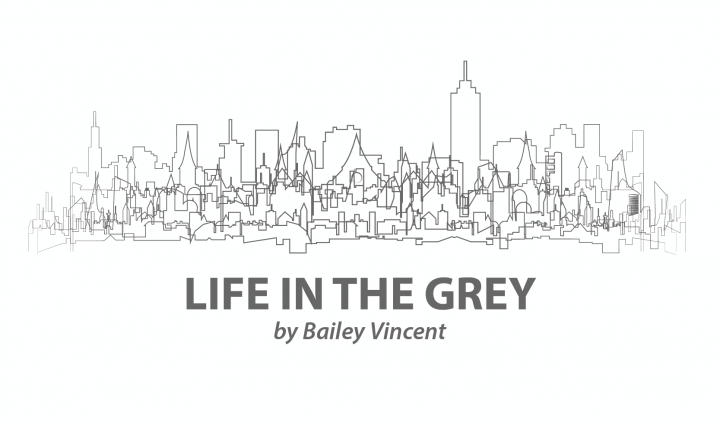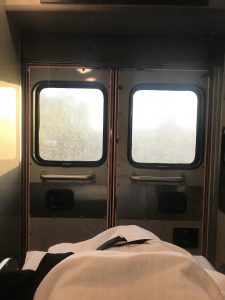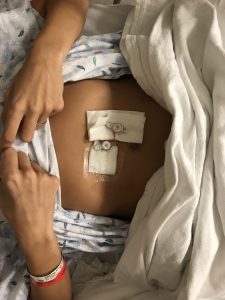I Don’t Identify with the Word Disabled
Written by |

I’m going to say something many people won’t like: I struggle with the word “disability.”
In the eyes of society, I am technically “disabled,” but that doesn’t stop me from struggling with the term. If it isn’t illness keeping me in and out of the hospital (consistency is not my middle name), it’s profound hearing loss that makes desk jobs with telephones or dim bars with hazy lighting an impossibility.
For many, disability is a beautiful word connected to a community that needs support, funding, and favor. For me, it feels like a word once removed. I’ve always felt like I don’t deserve it. Even when I can’t maintain a job because my organs are being removed. Even when I’m on supplemental oxygen and enteral nutrition. Even when someone asks me if Deaf people can drive. (Spoiler alert: they can.)
Maybe it’s because I like to keep my struggles as quiet as I can (outside of, you know, telegraphing it internationally through Instagram). My family has a long history of quiet suffering, especially among women. My grandmother had multiple forms of cancer in her later years and refused a wheelchair until the very end. Similarly, I refuse wheelchairs more often than not, even when I’ve had major intestinal surgeries.
Those little acts of defiance feel like necessary anarchy when it comes to something that is so far out of my control. It feels like rebellion. Punk rock. But there is just as much dignity in accepting help and exemplifying disability with grace as there is in shunning it.
I still can’t shake the feeling that no matter how bad I’ve had it in the past, someone always has it worse. Someone who has never had the chance to refuse a wheelchair. Someone who has never been able to “damn the man, save the empire” in the face of illness.
Not everyone will like my way of handling sickness, and that’s OK. This is not a casus belli column: I know my way is often wrong, and I wish I could exemplify the daring that goes into disability. But I don’t. That’s the honest truth.
I hate being in pain in front of other people. If I could curl up in a closet like an old dog or be cast out to sea on a chunk of ice (if the globe hasn’t warmed it to water by then), I would. Maybe it’s my lineage. Maybe it’s the fact that Deaf culture doesn’t consider itself “impaired.” Maybe it’s because I feel like defining my body without defining my body is the only thing that keeps me going. Maybe it’s because I hate being an advocate for what I can’t do and not for what I can.
Recently, my daughter hurt her toe during a theater performance. I asked her to walk with me to the dressing room so I could find a Band-Aid.
“I don’t want to, Momma,” she said sheepishly. “I don’t want everyone to see me.”
We’re uncomfortable getting attention for something we don’t feel we’ve “earned.” My daughter didn’t want fuss or fancy over her foot, just like I don’t want “woe is me” over the wanes of a woeful body.
Actor Shia LaBeouf recently described the process of writing about pain: “It’s strange to fetishize your pain and make a product of it. And you feel guilty about that. It felt very selfish.”
My columns, advocacy work, and art (dance) are incredibly selfish because they’re incredibly insular. They make my pain a product, and that will never stop feeling weird to me.
Sheepish or selfish as it can sometimes seem, however, the need for an outlet never ends. No matter what we share, pain is still pain. And disability, whether embraced readily or reserved for those who “need it more,” is a word that represents neither pain nor product.
Only purpose.
***
Note: Cystic Fibrosis News Today is strictly a news and information website about the disease. It does not provide medical advice, diagnosis, or treatment. This content is not intended to be a substitute for professional medical advice, diagnosis, or treatment. Always seek the advice of your physician or other qualified health provider with any questions you may have regarding a medical condition. Never disregard professional medical advice or delay in seeking it because of something you have read on this website. The opinions expressed in this column are not those of Cystic Fibrosis News Today, or its parent company, Bionews Services, and are intended to spark discussion about issues pertaining to cystic fibrosis.










Leave a comment
Fill in the required fields to post. Your email address will not be published.